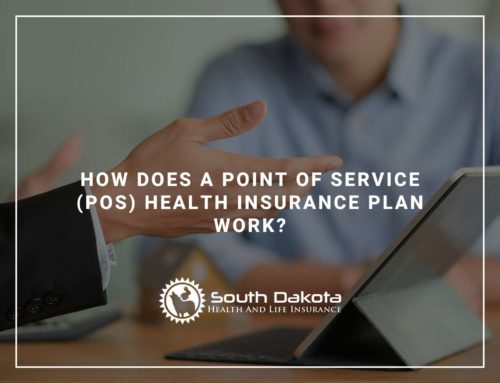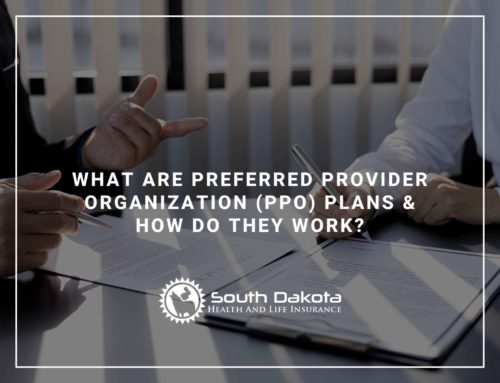HMO vs. PPO: Which Insurance Plan Is Right For You?
The Main Differences Between HMO & PPO Health Insurance Plans
Most people obtain a health insurance plan through their employer or their spouse’s employer. Unfortunately, only a few people fully understand the complexities of the insurance world and make a fully informed choice about their insurance plans. If you’re interested in learning more about the insurance options that are available to you, contact the agents at your Rapid Valley health insurance agency. There are some key differences between Preferred Provider Organization (PPO) and Health Maintenance Organization (HMO) plans that are important to understand so you can make the best choice for your needs.
What Are The Key Differences Between HMO & PPO Plans?
Different Pricing Structures
With an HMO, pricing is set. This means you only pay your pre-determined copay and you will know in advance how much each visit will cost. However, HMOs have some restrictions. Networks may be smaller and you must see a provider who is covered by your network.
PPOs offer patients more freedom when it comes to seeing providers who are out of their network, but the pricing can vary dramatically based on which provider you visit, whether they are in your network, and whether the visit applies to your annual deductible.
Preferred Providers & Clinic/Hospital Locations
An HMO plan will require each patient to designate a primary care provider who will be responsible for managing and coordinating their overall healthcare. If you are switching to an HMO from another type of insurance plan, you’ll want to make sure your primary care provider is in your network, or you’ll need to select a new one. You may not be able to see providers or specialists you’ve seen in the past if they are not in your HMO’s network.
In contrast, your PPO will enable you to schedule an appointment with any provider you choose, even if they are out of your network, but you may pay a higher fee if they are not in your network.
Specialist Appointments
Under many HMO plans, you’ll need to see your primary care provider and get a referral for a specialist in order for those services to be covered. This includes routine procedures that may seem straightforward, such as seeing a dermatologist examine a mole or scheduling with an ophthalmologist if you are having unusual vision problems. Some HMOs, called Open Access HMOs, waive the requirement to receive a referral before seeing a specialist. If easier access to specialists while maintaining your set copay amount is important to you, ask your Colonial Pine health insurance brokers for more information on open access HMO plans.
PPO plans don’t require a referral, so you can schedule with a specialist any time you choose to do so, without consulting your primary care provider first. Although this may seem appealing, most health organizations and doctors will still recommend seeing your primary doctor first to avoid potentially expensive appointments, tests, and procedures that the specialist may order. In many cases, these can be avoided or cost less through your primary care provider.
Healthcare While Traveling
Many PPO plans will enable you to see a provider while traveling without any interruption in coverage or extra costs, which can be extremely helpful if you need to seek urgent care for some reason. This can make PPOs a better fit for people who travel frequently.
Federal law requires HMOs to cover emergency care at any facility, even if it is out of your network.
Is a PPO Or HMO Plan Right For Me?
There are advantages and disadvantages to each type of health insurance plan, so you’ll want to carefully discuss the details of each type of plan with your South Dakota health insurance agents.
Many people appreciate an HMO because they never need to pay more than a predetermined copay and know in advance exactly how much an appointment will cost. There are always exceptions to this rule, so be sure to understand how your coverage works, which services are covered, and who is in your network. With an HMO, you’ll probably have access to a smaller health network, but the copays tend to be less expensive.
Other people prefer a PPO because they want the freedom to choose providers and visit specialists. You’ll likely have access to larger networks and more providers. However, the cost of each appointment can vary; your deductible and copays will probably be a lot higher than an HMO. In most cases, you’ll need to pay your deductible before the plan will cover additional healthcare services and costs.
As you decide whether an HMO or PPO is best for you, consult with an experienced Rapid Valley health insurance agency. Consider your lifestyle, healthcare needs, financial situation, proximity to covered emergency services, and your personal approach to your healthcare as you make your decision. Either way, your agents are ready to help you explore your options as you determine which type of plan will provide the best coverage for your needs.
Find The Perfect Health Insurance Plan With Your Local Health Insurance Agents
If you’re looking for a health insurance plan and wondering whether an HMO or a PPO might be right for you, consult with the friendly agents at South Dakota Health Insurance. We work with many national insurance carriers to provide plan options for everyone. Our agents will take the time to explain your options, answer your questions, and help you decide which plan is best for your needs. Contact us today to learn more about how we can provide you with peace of mind knowing that all of your health insurance needs are covered. We are ready to serve you!
South Dakota Health Insurance
Tel: 605-653-3824
Email: [email protected]






